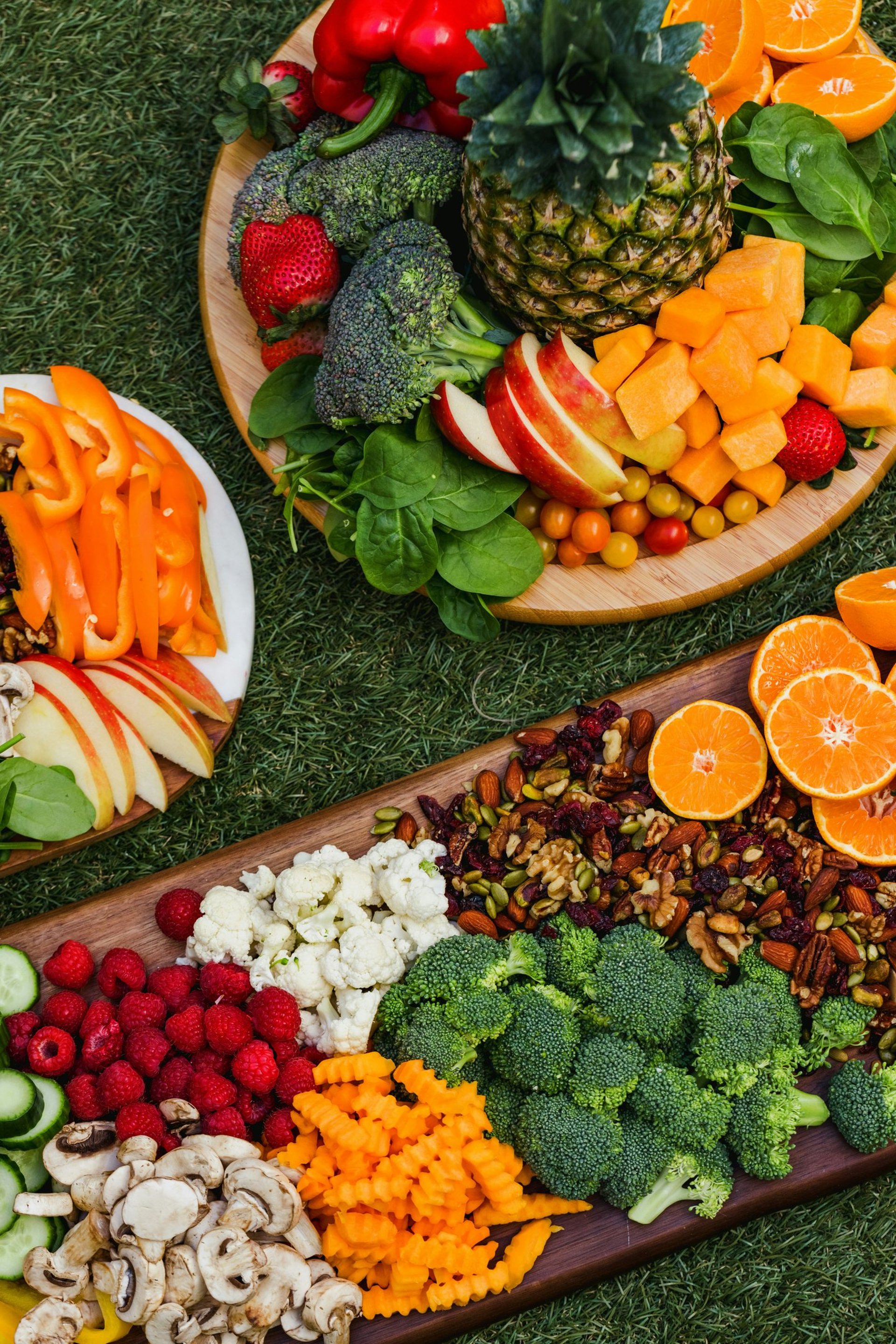
Eat Your Way to Glowing Skin - 5 Nutrients Every Woman Over 40 Needs
3 min read
As we age, our skin's nutritional needs evolve significantly. After 40, when cellular turnover slows and collagen production naturally declines, the foods we choose become even more critical for maintaining healthy, radiant skin. Based on current dermatological research, these five food-based nutrients can make a remarkable difference in how your skin looks and feels.
1. Beta-Carotene - Nature's Skin Protector
The Science. Vitamin A is highlighted as having a significant role in skin health, and beta-carotene is your body's preferred way to obtain this essential nutrient safely through food. Unlike synthetic vitamin A, which can be toxic in high doses, beta-carotene converts to vitamin A only as needed.
Key Benefits:
Supports cellular turnover for smoother, more even-toned skin
Enhances natural sun protection by increasing skin's defense against UV damage
Promotes wound healing and tissue repair
Reduces appearance of fine lines through improved skin cell regeneration
Prevents vitamin A toxicity while providing optimal nutrition
Daily Food Sources. Fill half your plate with orange and dark green vegetables daily. Sweet potatoes, carrots, butternut squash, spinach, and kale are powerhouse sources. One medium sweet potato provides over 400% of your daily vitamin A needs. Add frozen mango or papaya to smoothies for a tropical beta-carotene boost.
2. Vitamin C from Whole Foods - The Collagen Builder
The Science. Vitamin C is recognized as having significant evidence for skin health benefits. Unlike synthetic supplements, whole food vitamin C comes with bioflavonoids and cofactors that enhance absorption and effectiveness.
Key Benefits:
Stimulates collagen synthesis more effectively than isolated supplements
Provides natural sun protection when combined with other plant compounds
Brightens skin tone and reduces age spots naturally
Supports iron absorption for healthy circulation and skin glow
Offers antioxidant protection against environmental stressors
Daily Food Sources. Aim for 2-3 servings of vitamin C-rich foods daily. Red bell peppers contain more vitamin C than oranges, while strawberries, kiwi, and broccoli provide excellent amounts. Start your day with half a grapefruit, snack on strawberries, and include bell peppers in your lunch for optimal intake.
3. Omega-3 Fatty Acids - The Anti-Inflammatory Champions
The Science. Omega-3 fatty acids are highlighted as compounds with significant roles in skin health. These essential fats that your body cannot produce are crucial for maintaining skin barrier function and reducing inflammation that accelerates aging.
Key Benefits:
Strengthens skin barrier to prevent moisture loss and sensitivity
Reduces chronic inflammation that contributes to premature aging
Supports healthy cell membrane function for better nutrient absorption
Improves skin texture and elasticity through enhanced lipid production
Protects against sun damage at the cellular level
Daily Food Sources. Include fatty fish 2-3 times weekly - salmon, sardines, mackerel, and anchovies are excellent choices. For plant-based options, add ground flaxseed to oatmeal, snack on walnuts, or drizzle hemp seed oil on salads. Chia seeds in yogurt provide an omega-3 boost plus fiber.
4. Zinc from Food - The Healing Mineral
The Science. Zinc is identified as having significant evidence for skin health benefits. This essential mineral is involved in over 300 enzymatic reactions in your body, many directly affecting skin health and repair.
Key Benefits:
Accelerates wound healing and reduces scarring
Supports collagen production and tissue repair
Regulates oil production for clearer, more balanced skin
Provides anti-inflammatory effects that calm irritated skin
Enhances immune function for better skin defense
Daily Food Sources. Oysters are the richest source, but pumpkin seeds, beef, chickpeas, and cashews provide excellent amounts. A quarter-cup of pumpkin seeds delivers nearly half your daily zinc needs. Include legumes, nuts, and seeds in meals, and choose grass-fed meats when possible for optimal mineral content.
5. Polyphenols - The Antioxidant Powerhouses
The Science. Polyphenols and flavonoids are highlighted as having significant roles in skin health. These plant compounds provide powerful antioxidant protection and work synergistically with other nutrients to support skin health.
Key Benefits:
Neutralize free radicals that cause premature aging
Improve circulation for better nutrient delivery to skin cells
Provide natural UV protection when consumed regularly
Support collagen preservation by protecting existing fibers
Reduce inflammation throughout the body and skin
Daily Food Sources. Green tea, dark berries, pomegranates, and dark chocolate (70% cacao or higher) are excellent sources. Aim for 2-3 cups of green tea daily, add mixed berries to breakfast, and include colorful vegetables like purple cabbage and red onions in meals.
Your Food-First Approach
Nutrient-rich whole foods like fruits and vegetables, whole grains, and healthy fats are good for your whole body, including your skin. Focus on eating a rainbow of colors daily, emphasizing whole foods over processed options. Remember that skin changes from nutrition take 8-12 weeks to become visible, so consistency is key.
The most effective approach combines these nutrients naturally through varied, colorful meals rather than relying on supplements. Your skin after 40 can truly glow when nourished from within with the right foods, providing the foundation for healthy aging that no topical product can replicate alone.